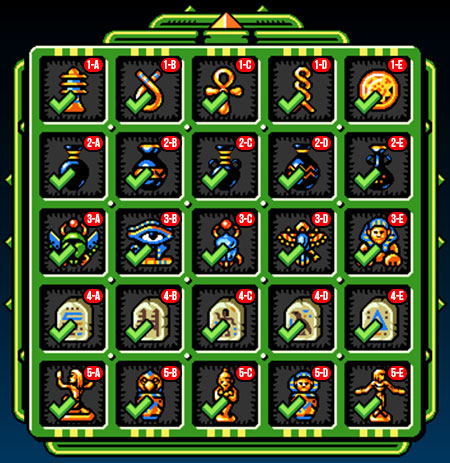

The Challenge: Above all other things, a role playing game is just that?a game. And games, beyond everything else, are supposed to be fun. Where RPGs are concerned, there are a number of things that increase the entertaining value of the game. Random chance, cunning strategy, detailed character development, and so on.
But even to a group who likes die rolling, having to roll three different types of checks for every action and compare the results will get very boring very fast. Even to a strategic group, five minutes of prep work for every combat turn is excessive. Even for descriptive players, not every little action warrants a paragraph worth of detail. And to players who care less about these parts of the game, such factors will quickly leech all the fun from game play. As such, you must consider the eighth challenge of building a versatile role playing game: the challenge of promoting simplicity.
Although players like to have opportunities to use their favorite rules and styles, they should be able to do so quickly and efficiently, and with plenty of accessible support from the game rules. Players who like to come up with their own descriptions for what their characters are doing should still be able to look at their character sheets and know exactly what their characters can do. Players who like to strategize should be able to pick out their strategies swiftly and efficiently, and while they might occasionally spend significant time deliberating over a particularly crucial action, they should have easy and yet effective staples to fall back on in a staple battle. Players who like die rolls should be able to get to the die rolling faster; they shouldn't be forced to roll check after check for individual actions.
The Risk: It's easy to devise rules for a situation, and not even that difficult to come up with a detailed combination rule to handle multiple similar situations. If you have five different measures of character ability'lets say physical power, reaction time, stealth, magic, and items?you could very easily incorporate plenty of rules to emphasize die rolling, description, strategy, or whatever other aspect of the game you wanted to emphasize. And you could probably do so in a balanced manner, simply by making each one useful for every action in its own way.
And the result would be disastrous. Would players roll a check for each attribute? Or maybe they roll a single check and add up modifiers gained from all five attributes? To maintain character value, each attribute would have to apply its modifier in a different way, indicating more calculation than die rolling. Forgetting checks, would the player have to describe how it uses each attribute in the action? How much description would be necessary? Do this, and every player will be coming up with an entire paragraph to describe every action?and it would have to, or else it's taking a penalty due to not having as many bonuses. Does each attribute give a bonus? Now players have to remember five possible bonuses for every action.
Again, a balanced role playing game is good, but it still has to be fun. While these rules, abilities, and options are nice to have, there has to be a balancing factor. If players don't have a reason not to use every option they have available, every encounter becomes the battle of sumo bonuses. However, where choices are required, the danger comes about that each action could take excessive time as the player runs through (and tries to remember) the abilities it has, the advantages of combining certain ones, and the results of using such combinations in the given situation.
However, as with most of these challenges, focusing too much on simplicity is no help to a role playing game. Too much simplification means that there is little character variety. Take the same attribute example from above, and simplify it to what seems a happy medium. The player can choose one attribute when performing an action (incorporating it into its description, if the group has a descriptive style), and it gets a bonus on its action dependent on how high the attribute is, modified based on the attribute's merit in the situation. This seems ideal; there is potential for description and strategy, a direct correlation between stats and action success, and very little time required to get to the check and then on with the game.
The only problem is that there are really only five available character types. There is no real point in focusing on two or more attributes. It may sometimes seem so, since such a focus has a better chance of getting a situational bonus, but the fact is that one very high score is probably more useful than two medium scores. The players might be able to describe each character's actions differently, which is a good way to create stylistic customization, but there is only scant possibility for valuable statistical customization. Worse still, regardless of what your choice is, the stats are the same. Although situation may change bonuses, for a standard-fare action, choosing strength is no different from choosing speed.
Clearly, this example is an extreme?as a half-page role playing game, it just about has to be!?but it provides a necessary warning. Oversimplification can be just as bad as complexity.
The Solution: Of all the challenges I've dealt with in the creation of QoTR, simplicity may be the hardest I've faced. I'm still not entirely sure I've overcome it. My preference system offers a lot of abilities, and playtesting has shown that a battle between two high-level characters can drag on for quite some time. However, I've managed to make some headway against this difficulty.
The best tactic I've used is keeping things optional. Description is always optional, and the check system keeps generally to one check per action, so there is no difficulty there. Strategy is the trick, so the first thing I did was make sure that every preference has a nice, easy-to-use ability that that help out directly but decisively in combat.
Next, many abilities don't add new bonuses as much as they make it easier or more efficient to obtain existing ones. The majority of abilities in QoTR either make things easier to use or offer a different option rather than a bonus. Most bonuses also carry a corresponding cost, so at the very least players don't have to spend several minutes plotting out every action.
I have one sure-fire way to simplify combat. It requires players to put in a bit of extra effort on character creation, and honestly, some html experience is nice, but I have the character sheets set up to auto-update on power gains. Players can go into the sheet and use the variables given to add their abilities and strategies into the quicky combat options provided. Once they do so, they can simply select from their preset tactics, allowing quick strategy. This doesn't prevent them from designing an elaborate action piecemeal if the situation warrants, but can cut down significantly on time spent during standard battles.
Simplicity is an important aspect of a role playing game. If players have to jump through hoops to perform their actions, it quickly cuts down on fun. However, oversimplifying leads to stagnation. Keep different game factors optional, and give players as much accessible support as possible so they can perform their actions quickly and keep the game going at an exciting speed.




 3 Letters: Guess the Word! Answers Level 2
3 Letters: Guess the Word! Answers Level 2 OneWord Answers All Levels
OneWord Answers All Levels Hi Guess the Character Level 6 Answers 132-160
Hi Guess the Character Level 6 Answers 132-160 Little Alchemy Candy Combinations Pack
Little Alchemy Candy Combinations Pack Quiz Pop Musicians and Band Answers
Quiz Pop Musicians and Band Answers